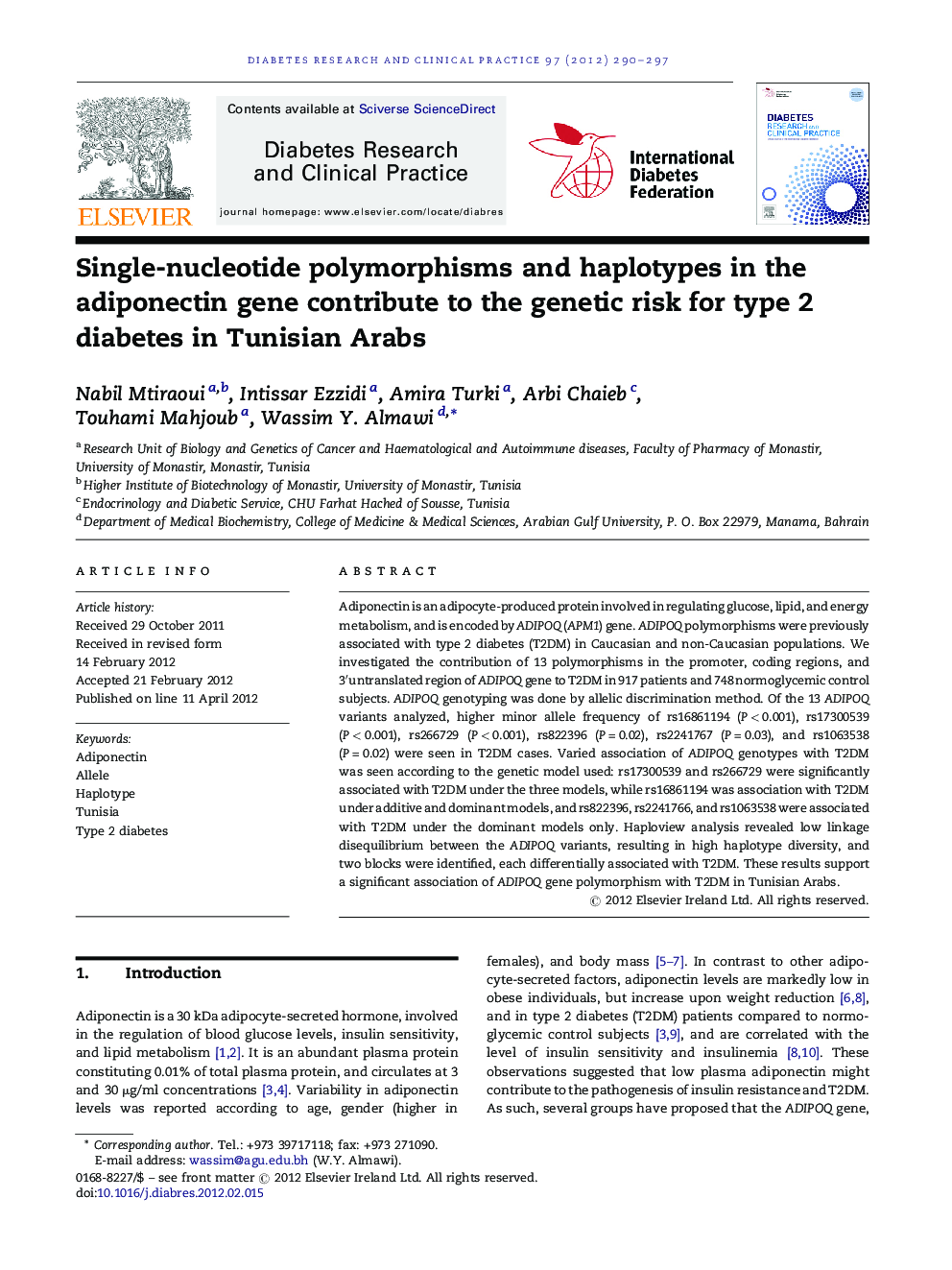| Article ID | Journal | Published Year | Pages | File Type |
|---|---|---|---|---|
| 2797120 | Diabetes Research and Clinical Practice | 2012 | 8 Pages |
Adiponectin is an adipocyte-produced protein involved in regulating glucose, lipid, and energy metabolism, and is encoded by ADIPOQ (APM1) gene. ADIPOQ polymorphisms were previously associated with type 2 diabetes (T2DM) in Caucasian and non-Caucasian populations. We investigated the contribution of 13 polymorphisms in the promoter, coding regions, and 3′untranslated region of ADIPOQ gene to T2DM in 917 patients and 748 normoglycemic control subjects. ADIPOQ genotyping was done by allelic discrimination method. Of the 13 ADIPOQ variants analyzed, higher minor allele frequency of rs16861194 (P < 0.001), rs17300539 (P < 0.001), rs266729 (P < 0.001), rs822396 (P = 0.02), rs2241767 (P = 0.03), and rs1063538 (P = 0.02) were seen in T2DM cases. Varied association of ADIPOQ genotypes with T2DM was seen according to the genetic model used: rs17300539 and rs266729 were significantly associated with T2DM under the three models, while rs16861194 was association with T2DM under additive and dominant models, and rs822396, rs2241766, and rs1063538 were associated with T2DM under the dominant models only. Haploview analysis revealed low linkage disequilibrium between the ADIPOQ variants, resulting in high haplotype diversity, and two blocks were identified, each differentially associated with T2DM. These results support a significant association of ADIPOQ gene polymorphism with T2DM in Tunisian Arabs.
